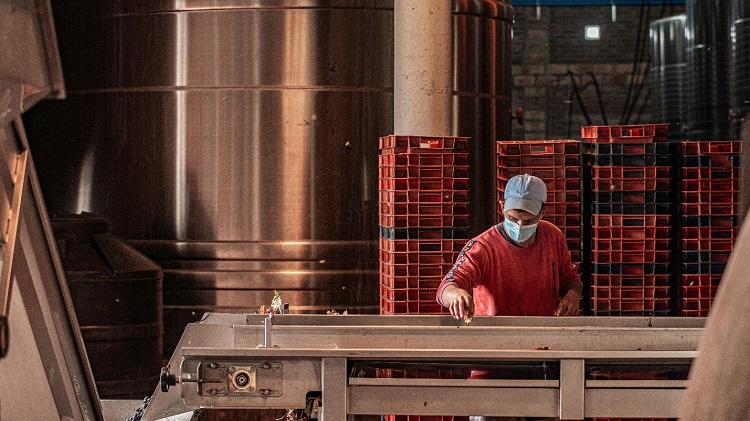In today’s fast-paced manufacturing sector, optimizing production lines for flexibility and scalability is not just advantageous; it’s essential. As markets evolve and consumer demands shift rapidly, the ability to adapt manufacturing processes efficiently becomes a critical factor in a company’s sustainability and growth. This article explores how modern production facilities can enhance their operational efficiency and prepare for future demands by focusing on flexibility and scalability.
Table of Contents
Understanding Flexibility and Scalability in Production
Flexibility in manufacturing refers to the ability of a production line to adjust and respond quickly to changes, whether it’s switching between product types, scaling production volumes up or down, or integrating new technologies. This adaptability is crucial for manufacturers to remain competitive and responsive to market changes and customer preferences. Conversely, scalability involves the capability of a production system to expand its output without compromising product quality or incurring disproportional increases in costs. Effective scalability ensures that a business can take on larger orders or expand its product range without significant delays or transformations in existing processes.
Both flexibility and scalability are not standalone concepts but are deeply interconnected. A flexible production line is often more easily scalable, as it can adjust to increased production demands without extensive overhauls. Similarly, scalable operations must inherently possess some degree of flexibility to absorb and adapt to growth dynamics efficiently.
Role of Modular Conveyor Systems in Enhancing Flexibility
One of the most significant innovations in modern manufacturing that supports both flexibility and scalability is the modular conveyor system. These systems are designed to be easily adjustable, allowing for quick changes in the layout or functionality of the production line as required. An exemplary model in this regard is the DynaCon Modular Plastic Belt Conveyor. This system exemplifies how modular designs can drastically enhance production line flexibility. The DynaCon conveyor offers easy reconfiguration, which is pivotal during product changeovers or when fine-tuning the production process to accommodate new product designs.
The modular nature of these conveyors means that components can be added, removed, or rearranged with minimal downtime, thus supporting continuous production flow. Their plastic composition also offers durability and ease of maintenance, which are essential for long-term operational sustainability. By incorporating such flexible conveyor systems, manufacturers can significantly reduce setup times and respond more agilely to varying production demands.
Scalability Through Smart Design and Automation
Achieving scalability in manufacturing requires foresight in design and the strategic implementation of automation technologies. Smart design pertains to the capability of production systems to expand or contract easily in response to business needs without major overhauls. This approach includes the adoption of scalable technologies such as adjustable conveyor belts, which can extend or retract based on production volume, and robotic arms, which can be programmed for various tasks without physical reconfiguration.
Automation plays a crucial role in scalability by enabling consistent and efficient production processes. Automated systems can be scaled up by simply adding more units or upgrading software, making them ideal for handling increased production demands. This is particularly beneficial in industries facing rapid growth, as automation ensures that production capacity can keep pace with market demands without compromising quality or increasing labor costs disproportionately.
Assessing and Planning for Future Needs
For a production line to remain both flexible and scalable, ongoing assessment and strategic planning are essential. Manufacturers need to continuously evaluate their production processes and anticipate future changes in demand. Planning for future needs involves not just scaling up but also the potential need to scale down or pivot production focus without significant downtime or financial loss.
Scalability audits are practical tools in this regard. They help identify potential bottlenecks or inefficiencies that could hinder expansion. Regular flexibility checks ensure that the production line can adapt to changes quickly, whether they involve introducing new product lines or modifying existing ones. These proactive measures safeguard the manufacturer against future uncertainties and market fluctuations.
Integrating New Technologies with Existing Systems
Integrating new technologies into existing production lines presents challenges, particularly when ensuring compatibility and minimal disruption to ongoing operations. The key to successful integration lies in selecting modular and adaptable technologies that can be easily upgraded or reconfigured as needed. Phased rollouts of new technology help mitigate risks by allowing adjustments to be made based on real-time feedback and operational impact.
Providing comprehensive training for staff on new equipment and processes ensures that technological upgrades enhance productivity rather than creating bottlenecks. Effective training also helps in achieving a smoother transition and quicker return to full operational capacity.
Building Resilient Manufacturing Operations
Optimizing production lines for flexibility and scalability is essential for manufacturers aiming to thrive in competitive and ever-changing markets. By investing in modular systems and embracing smart automation, manufacturers can not only meet current production demands but also prepare for future growth opportunities.
Manufacturers must adopt a forward-thinking approach, ensuring that their production systems are not only equipped to handle today’s challenges but are also prepared to adapt and scale for tomorrow’s opportunities. This strategic foresight will be pivotal in maintaining competitiveness and achieving long-term success in the manufacturing sector.

